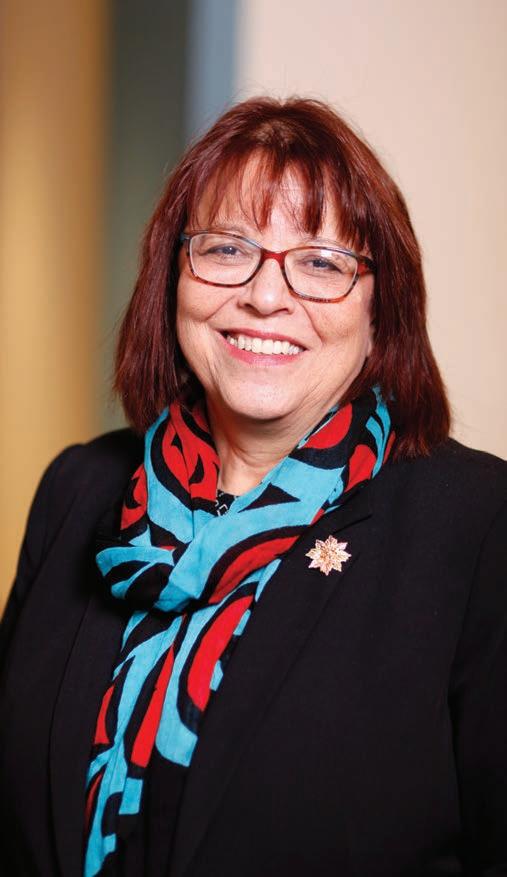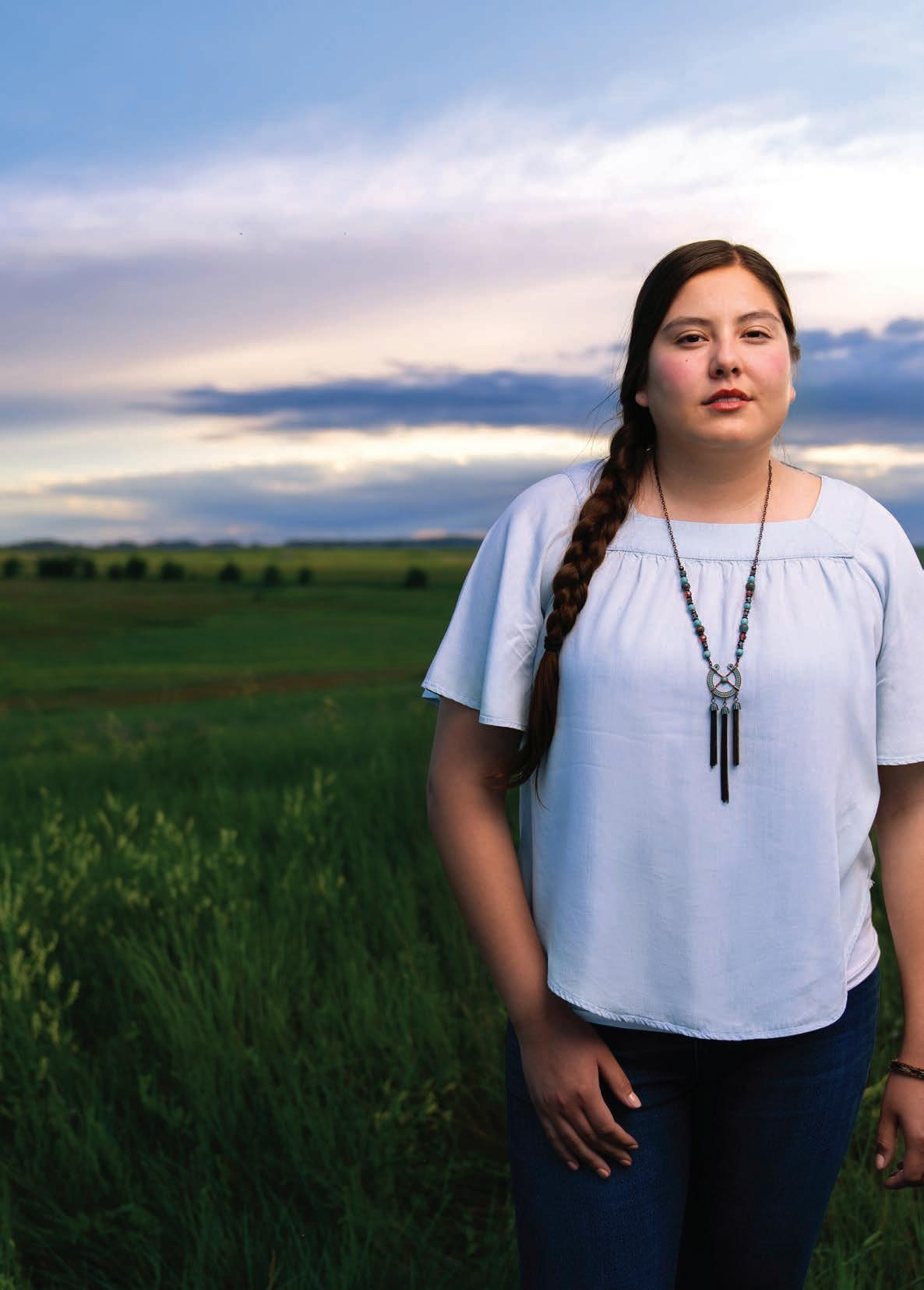MEETING CHALLENGES IN THE WAKE OF THE PANDEMIC: COMING TOGETHER FOR NATIVE STUDENTS, TRIBAL COLLEGES, AND EDUCATORS
C
OVID-19 is a symptom of systemic inequity with regard to race, economics, and health, hitting Native communities hardest due to problems rooted in centuries of policy. Currently, 44% of Native students major in science/technology/engineering/math (STEM), healthcare, and education. Our Native communities need them to graduate and enter the workforce more than ever.
E D U CAT I O N I S T H E ANS W E R
Prior to the pandemic, the College Fund was already working hard to close the college attainment gap. Compared to 31.5% of the overall population, only 14.5% of American Indian and Alaska Native people age 25 and older have a bachelor’s degree or higher. Today the need to close that gap is even greater. The pandemic has the potential to devastate Native students and communities by interrupting or stopping them from completing their degrees.
The American Indian College Fund reached out to the students, faculty, staff, and institutions we serve to learn what tools and support they needed to continue students’ educations. We were inspired by our students’ optimism and faith that they could achieve their education goals and listened to their needs. We next created a plan to meet those needs and reached out to our supporters, who creatively and flexibly worked with us to meet our communities’ needs. Together we moved mountains! Our work is not finished but have made a difference—while creating strength from interconnectedness.
Our Scholars’ Needs: Essentials Job Loss May Lead to Dropping Out
50% of TCU scholars work full-time or part-time to support their families while attending college. > 50% are the primary source of income for their families.
8
Without qualified college graduates, Native communities will continue to experience shortages of desperately needed healthcare workers, teachers, and other professionals.
American Indian College Fund Full Circle Scholars may have to drop out of college due to finances: • Fall 2019: 1 in 10 • Spring 2020: 1 in 5 Data source: American Indian College Fund surveys.
Food and Housing Insecurity
50% of all TCUs provide food and housing to students. All were closed in spring 2019, threatening to create even greater food and housing insecurity among TCU students. 2019 62% of TCU students reported being hungry or food insecure in the previous year. 2020 69% of TCU students reported being housing insecure.
Source: #RealCollegeSurvey, The Hope Center at Temple University.
Access to the Internet and Technology
Most reservation communities lack widely available broadband service. 20% of Native students surveyed do not have home computers and internet access. Less than half of students surveyed have a printer. The most reliable computers and internet connections are at TCUs, which are no longer widely accessible with distance learning.







